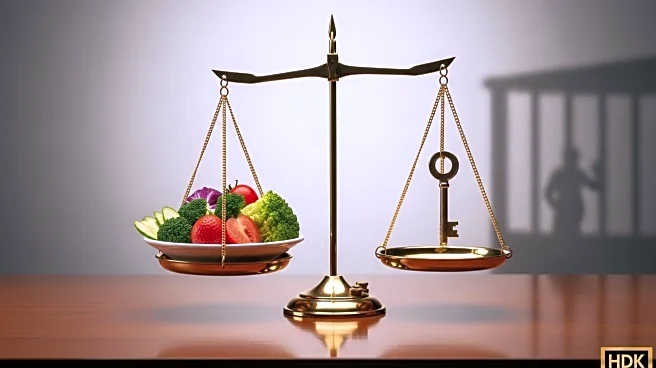What is the story about?
What's Happening?
Israel's Supreme Court has ruled that the state must improve the nutritional provisions for Palestinian prisoners, citing a legal obligation to ensure a basic level of existence. This decision comes amid ongoing tensions following the Hamas attack on October 7, 2023, which resulted in significant casualties. Thousands of Palestinians have been detained since the conflict began, and human rights groups have criticized the conditions in Israeli prisons. The ruling follows a petition by the Association for Civil Rights in Israel, which highlighted issues of malnutrition and starvation among prisoners. Meanwhile, President Trump has issued a 'last warning' to Hamas to accept a deal for the release of Israeli hostages, indicating potential negotiations for a ceasefire.
Why It's Important?
The Supreme Court's decision underscores the humanitarian concerns within the Israeli-Palestinian conflict, particularly regarding the treatment of detainees. This ruling may influence international perceptions of Israel's handling of prisoners and could impact diplomatic relations. The involvement of President Trump in negotiations highlights the U.S.'s role in attempting to mediate the conflict, potentially affecting U.S.-Middle East relations. The pressure on Israeli Prime Minister Netanyahu to resolve the hostage situation and end the war reflects internal and external demands for peace, which could lead to significant political and social changes within Israel.
What's Next?
The implementation of the court's ruling on prisoner nutrition is expected to be closely monitored by human rights organizations. President Trump's involvement in negotiations may lead to further diplomatic efforts to secure a ceasefire and the release of hostages. The Israeli government faces increasing pressure to address humanitarian concerns and negotiate peace, which could result in policy shifts or changes in leadership strategies. The international community may continue to call for an end to hostilities, influencing future diplomatic engagements.














